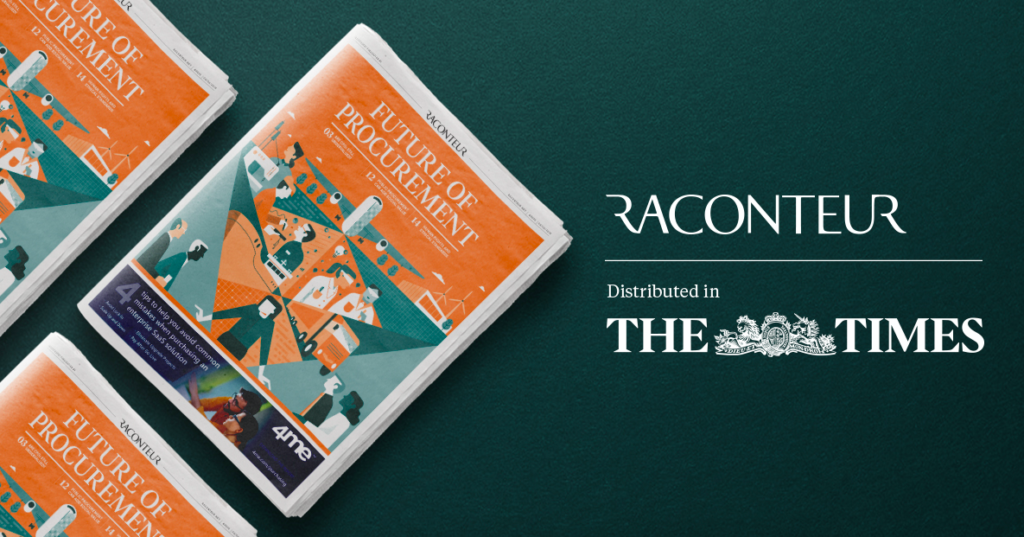3 Ways Procurement Can Make A Lasting Impact On The Organisation
Advanced procurement functions, and the CPOs that lead them, can make a significant and lasting impact on the success of their companies, but only by focusing on the real value and innovation that suppliers can bring…
 By Jacob Lund/ Shutterstock
By Jacob Lund/ Shutterstock
There’s no doubt that procurement enjoys a privileged position in a company’s value chain. Sitting between a network of thousands of suppliers and the business, it has clear visibility of customer need, company strategy and the capabilities that exist in the supply base
From such a position, advanced procurement functions, and the chief procurement officers (CPOs) that lead them, can make a significant and lasting impact on the success of their companies, but only by focusing on the real value and innovation that suppliers can bring and how this can support the organisation’s ultimate value proposition.
To do so, procurement must drive change in three broad areas. Firstly, CPOs must address the procurement operating model so it is better aligned with company strategy and end-customer value. Historically, procurement has segmented third-party spend into categories, from raw materials to office furniture to semiconductors and so on, with the ultimate goal of leveraging scale to reduce price, while also managing risk and quality.
Smart chief executives, however, will be far more interested in how suppliers can enhance the product portfolio to maximise the company’s competitive position in the market. Aligning the supply base around that portfolio will enable supplier innovations to feed more successfully into that goal and ensure collaboration with suppliers is more productive and more focused on value creation.
Of course, this isn’t feasible for every last drop of third-party spending so CPOs must differentiate between core and non-core spend, so 100 per cent of the procurement function’s energy can be applied to those suppliers that really matter.
Secondly, for this to be feasible, CPOs must ensure procurement is a frictionless experience for those in the business who buy as part of their role. Every effort should be made to automate through digital technologies and platforms, so the actual buying process is seamless and efficient.
Robust governance and a sophisticated suite of digital technologies that have been designed with the end-user in mind must underpin such an environment. And the ultimate goal must be to reduce the time and resource spent on non-core products and services, without sacrificing low cost, impacting quality or introducing risk.
This laser-guided focus on execution must be a cross-functional effort, so the right specifications are secured and any savings go straight to the bottom line and are locked into the profit and loss.
Thirdly, the very fundamentals of supply markets continue to evolve. It’s clear an increasing volume of the world’s innovation is being developed outside the walls of large corporates and big, traditional suppliers, with smaller, niche companies and startups working on new technologies and approaches that regularly disrupt traditional, incumbent markets.
Further, these non-traditional players work differently, are more agile, less process led, more open to collaboration and come with large amounts of risk. But despite this, corporates cannot afford to close their doors to the innovation taking place within them.
CPOs must develop the capability to engage with these outliers and engineer how the intellectual property they produce can be introduced into their organisation’s value chain, whether through traditional onboarding as suppliers, technology licensing, collaboration with other suppliers in the network or myriad other potential approaches.
In essence, CPOs must build and exploit supply networks, or ecosystems, capturing value during the collaboration that takes place between third parties at all points in the value chain.
None of this is straightforward and few organisations are even close to making it a reality. To be successful, it demands the support of a visionary chief executive who understands the dynamics at play in the supply base and beyond, as well as a procurement team full of intellectually curious, entrepreneurial and collaborative personalities.
But if done well, procurement will evolve from a position of controller to one of value architect, and one of the most critical functions in any modern corporation able to positively impact revenue, sustainability and profit targets.

This article, edited by Peter Archer, was taken from the Raconteur Future of Procurement report, as featured in The Times.